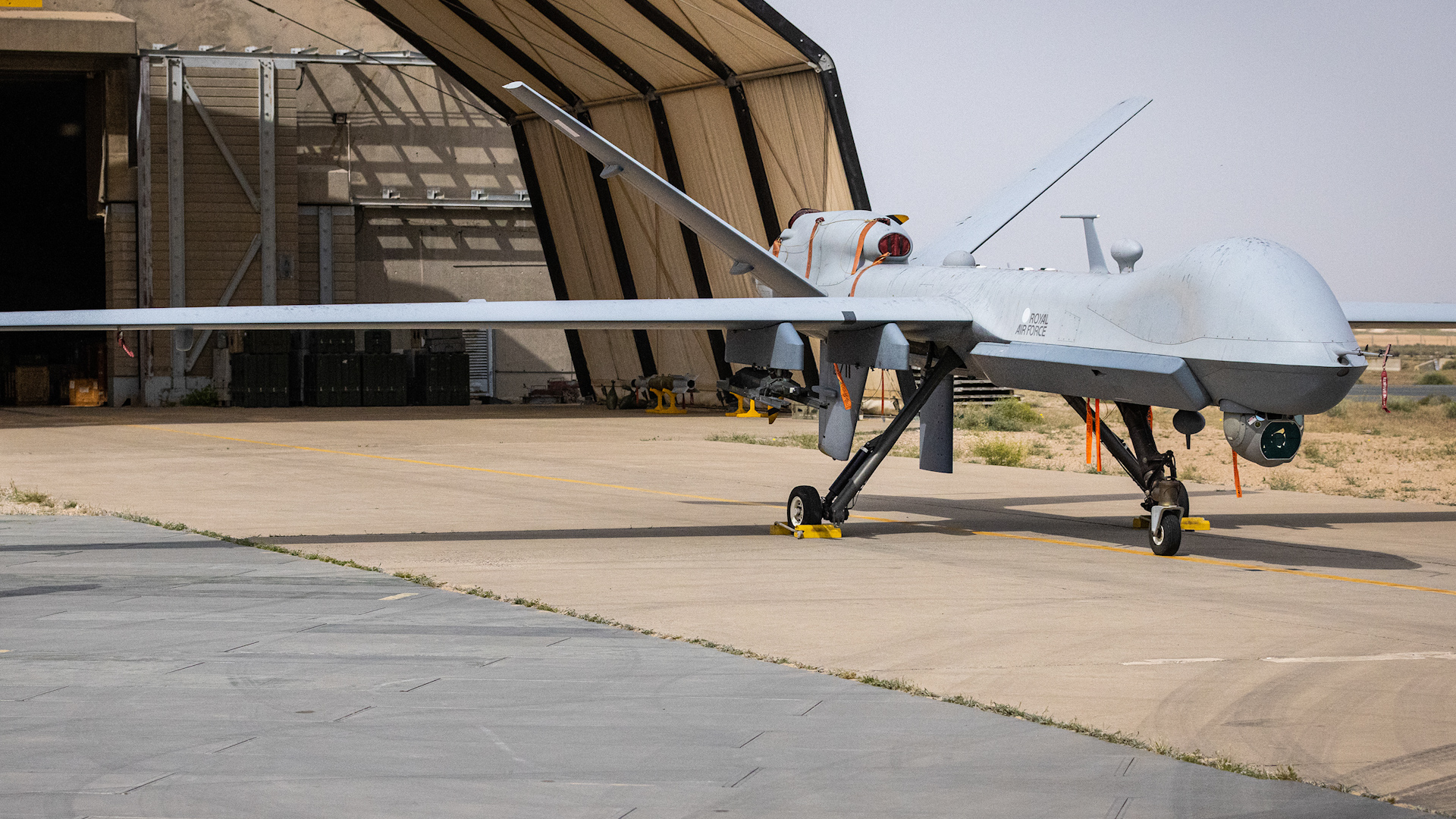
How RAF drone operated from UK helped to evacuate people from Sudan

An RAF MQ9 Reaper drone has provided key intelligence to support the UK's evacuation of British nationals from war-torn Sudan.
The drone offered real-time imagery of the port, airfield and evacuation areas, highlighted areas potentially dangerous to troops on the ground and also supported the crew of HMS Lancaster which is alongside in Port Sudan.
The last UK evacuation flights have left Sudan for Cyprus, according to the Foreign, Commonwealth and Development Office, with Foreign Secretary James Cleverly saying on Tuesday the evacuation had seen 2,341 leave the war-torn county on 28 flights.
The images from the Reaper drone were sent to HMS Lancaster and the teams from the UK Armed Forces, Foreign, Commonwealth and Development Office and Border Force in Port Sudan, as they processed people for safe onward travel.
The Remotely Piloted Aircraft System is designed for Intelligence, Surveillance, Target Acquisition and Reconnaissance (ISTAR) missions, and is operated by XIII Squadron based at RAF Waddington, Lincolnshire.
The squadron's Executive Officer said: "For XIII Squadron to operate the RAF Reaper over two separate continents on two different missions, having eyes on the ground in Africa and the Middle East simultaneously shows the flexibility of the aircraft and our people, a remarkable effort from all the squadron."
Commander Tom Johnson, HMS Lancaster's commanding officer, said: "The last Royal Navy ship to come here was HMS Galatea, almost 40 years ago, which means our knowledge of this port is somewhat out of date.
"For me, as the captain, to have that knowledge provided by Reaper and imagery of the surrounding area has allowed us to plan our force protection and situational awareness."
"It has been important to understand the route between where my ship is and the Coral Hotel, where all the affected persons are currently being administered prior to evacuation."
Two final flights took off from Port Sudan on Wednesday night and Thursday morning, the final one leaving at 01:10 local time – more than two hours later than scheduled.








